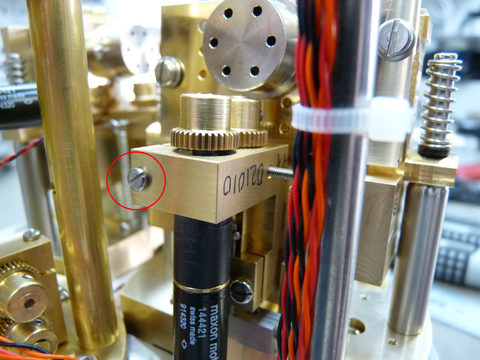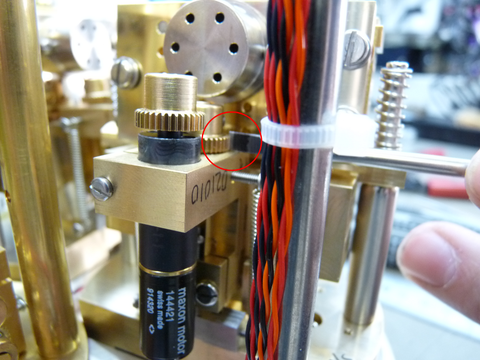Emergency locking for 3ESPC(D)s
It is sometimes impossible to lock a 3ESPC or 3ESPCD. This situation may arise when, for example, damage has occurred to the power input circuitry of the instrument. The instrument will need to be returned to a service centre for repair but, if transported with the masses unlocked, significant additional damage may be caused.
This procedure allows an operator to manually lock the masses before transit.
The procedure
-
If possible, find a safe, clean, dry place to work.
-
Remove the lid and tube, exposing the mechanics. Take particular care not to knock or catch any of the internal components when removing the tube.
-
Locate one of the horizontal locking motor clamp screws (circled in the photograph below):

-
Using a small, flat-headed screwdriver, loosen the screw by a turn or two, then slide the motor upwards until the two gears disengage:

-
Using a small, flat-bladed screwdriver engaged in the gear teeth, manually turn the driven gear until the mass is locked:

-
Slide the motor back down until the gear teeth re-engage and then re-tighten the motor clamp screw.
-
Repeat this procedure for the second horizontal mass.
-
Locate the vertical locking gears, as shown in the photograph:

These gears can normally be turned by hand to lock the vertical mass. If they are particularly difficult to move, a small, flat-headed screwdriver can be used to help rotate them.
-
Replace the tube and lid. The instrument can now be safely transported to a repair centre.
